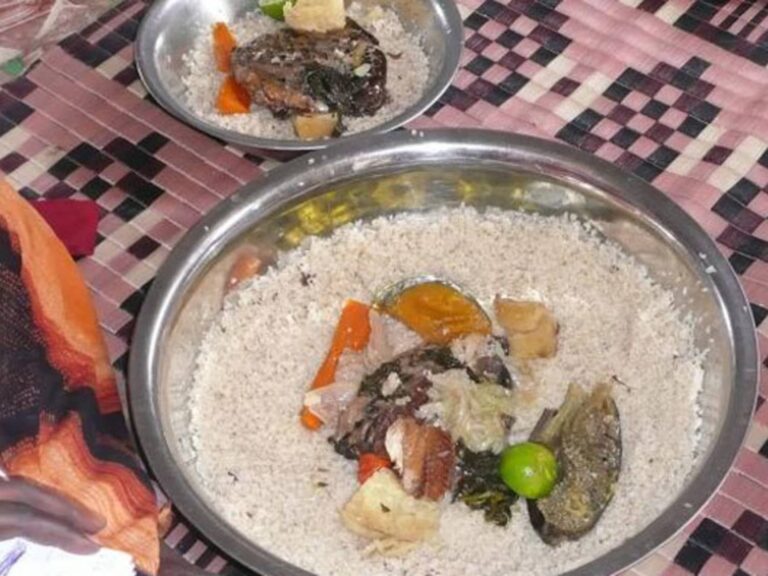Introduction: Mauritania’s Dietary Landscape
Mauritania is a country in West Africa that has a diverse food culture. As a country bordered by the Atlantic Ocean and the Sahara Desert, its cuisine is influenced by various factors. Mauritania has a rich food culture, and its cuisine is a blend of traditional and modern recipes. The country is known for its flavorful dishes, which are made with fresh ingredients and spices.
Islamic Laws on Food Consumption
Islam is the predominant religion in Mauritania, and it has a significant influence on the country’s dietary habits. Muslims are required to follow specific rules regarding food consumption, which are based on the Quran and the Hadith. The Quran prohibits the consumption of pork and alcohol. Muslims are also required to follow specific dietary restrictions during the holy month of Ramadan. During this period, they fast from dawn to dusk every day.
Traditional Mauritanian Cuisine
Traditional Mauritanian cuisine is heavily influenced by the country’s nomadic past. The cuisine is centered around grains, such as millet and rice, and vegetables. Meat, particularly sheep and camel, is also a staple in Mauritanian cuisine. Harira, a soup made with meat, lentils, and vegetables, is a popular dish in Mauritania. Couscous is also a staple in the country’s cuisine, and it is often served with meat and vegetables.
The Role of Religion in Mauritanian Diet
Religion plays a significant role in the Mauritanian diet. The majority of the population follows the Islamic faith, which has specific dietary restrictions. These restrictions are meant to ensure that Muslims consume only clean and pure foods. Muslims are prohibited from consuming pork, alcohol, and non-halal meat. They are also required to observe certain dietary restrictions during the holy month of Ramadan.
Dietary Restrictions for Health and Hygiene
In addition to religious dietary restrictions, Mauritania also has dietary restrictions for health and hygiene reasons. In 2010, the country banned the importation and production of plastic bags. This ban extended to plastic bags used to wrap food, which were replaced with biodegradable bags. The country also prohibits the consumption of bushmeat, which is meat from wild animals. The consumption of bushmeat is believed to be a public health risk.
Observing Cultural and Religious Dietary Customs
Mauritanians place a high value on observing cultural and religious dietary customs. The country’s cuisine is a blend of traditional and modern recipes, which reflects the country’s diverse cultural heritage. Muslims are required to follow specific rules regarding food consumption, which are based on the Quran and the Hadith. Traditional Mauritanian cuisine is heavily influenced by the country’s nomadic past, and it is centered around grains, vegetables, and meat. Overall, Mauritanian cuisine is a reflection of the country’s rich food culture and diverse heritage.

